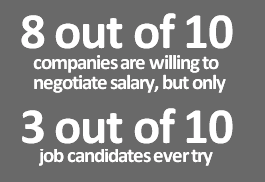2012 Rewind: On Gates and Gatekeepers
Note: I am winding down the last, waning days of 2012 by re-running a few posts from this year that either I liked, were (reasonably) popular, or just didn't get a fair shake the first time around. If that is not your sort of thing, then come back on January 2, 2013 when fresh and tasty content resumes. Thanks for reading in 2012!
This piece, On Gates and Gatekeepers ran in May as part of what seems like the annual blogging exercise of finding interesting college commencement speeches to write about. Of course I complied, and this was both my favorite post on the subject as it talked about the wonderful commencement address given by author and artist Neil Gaiman.
----------------------------------------------------------------------
On Gates and Gatekeepers
A week or so back I had a post titled, 'The Skilled Trades Need a Famous Commencement Address Too', in which I whined for 500 words or so about the prevalence of actors, politicians, ridiculously successful internet gazillionaires, and the other non-relatable types that seem to deliver just about all of the annual college commencement addresses, or at least the ones we hear about. My point was more or less that in a tough economic climate, and with an enduring and worsening need for talented people to enter fields such as the skilled trades, teaching, and other not-as-glamorous-as-acting-or-being-a-social-media-consultant, that the consistent set of messages stemming from the annual round of typical commencement speeches, ('Just go out there and be fantastic', 'You can save the world', 'Borrow $20k from your parents and start a business'), were all just getting tiresome. If the nation truly needs more machinists or nurses or accountants, then could we at least start acknowledging that more openly and with more conviction?
So as I said, I don't really give two shakes about 99% of the latest round of commencement addresses. But once in a great while there is a talk worth talking about, and worth sharing, even if it does bear some similarity to the hacky, same-old same-old advice that gets recycled each spring. The speech I wanted to call out was given on May 17th at The University of the Arts in Philadelphia by the author Neil Gaiman, famous mostly for The Sandman, a series of comics written between 1988 and 1996.
In the speech, (text here, embedded video below, email and RSS subscribers will need to click through), Gaiman, speaking to a graduating class from an art school, offers advice and wisdom gained over his career as a working, and certainly, highly successful creative. While the entire speech is interesting, I wanted to call out two passages that speak more broadly to issues about career planning and management, and to the pace of change impacting not just the creative industries, but almost all organizations these days.
On career planning and management:
When you start out on a career in the arts you have no idea what you are doing.
This is great. People who know what they are doing know the rules, and know what is possible and impossible. You do not. And you should not.
Value in the real world - In your organization, the people making the rules, setting the boundaries, (maybe that's you?), are inherently limited by their tendency to fail to envision a world outside those boundaries. Having a job setting rules, well it seems that is a path to a long career setting rules and enforcing boundaries. Maybe you are ok with that, maybe not.
On organizational and business model change:
I've talked to people at the top of the food chain in publishing, in bookselling, in all those areas, and nobody knows what the landscape will look like two years from now, let alone a decade away. The distribution channels that people had built over the last century or so are in flux for print, for visual artists, for musicians, for creative people of all kinds.
Which is, on the one hand, intimidating, and on the other, immensely liberating. The rules, the assumptions, the now-we're supposed to's of how you get your work seen, and what you do then, are breaking down. The gatekeepers are leaving their gates. You can be as creative as you need to be to get your work seen. YouTube and the web (and whatever comes after YouTube and the web) can give you more people watching than television ever did. The old rules are crumbling and nobody knows what the new rules are.
Value in the real world - In the arts, and probably your business too, the landscape two, five, ten years out is entirely unpredictable, and it is likely what works today will not work tomorrow. The gatekeepers are leaving their gates.
Don't allow yourself to use that as an excuse to over-analyze or hesitate. The winning organizations are not waiting to 'see how things play out', by that time, it's likely that you'll be too late to adapt once the new landscape is revealed. Better to set off on the course you think will be successful than wait for some kind of signpost from beyond.
Anyway, that's it for me on commencement speeches, at least until next Spring.
The video of the full speech is below, and I think definitely worth your time over lunch, or at night when you have a spare 20 minutes or so.
Have a Great Weekend!

 Steve
Steve



